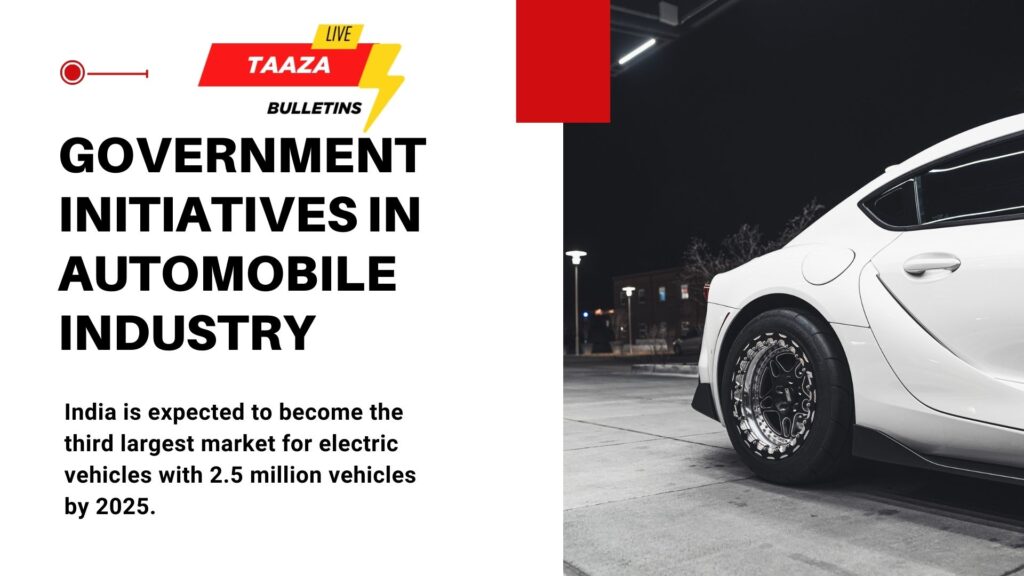India’s focus is not on imposing dominance but on enhancing its influence, said Union Finance Minister Nirmala Sitharaman, emphasizing that no country, including the US or China, can afford to overlook New Delhi today.
India’s objective is not to assert its dominance but to expand its influence, stated Union Finance Minister Nirmala Sitharaman, emphasizing that no nation, including the United States or China, can overlook New Delhi’s significance today.
Sitharaman expressed these views on Wednesday during a panel discussion titled ‘Bretton Woods at 80: Priorities for the Next Decade,’ organized by the Center for Global Development.
She arrived in the city on Tuesday to participate in the annual meetings of the Bretton Woods Institutions, namely the International Monetary Fund and the World Bank.
“India’s focus is not on asserting dominance, given that we are the largest democracy and the most populous nation, but rather on enhancing our influence,” she remarked.
Highlighting that one in every six individuals globally is of Indian origin, she noted, “Our economy and its growth cannot be overlooked.”
Sitharaman pointed out that the developmental trajectory taken by developed nations, which involved the production of textiles, bicycles, and other goods, is “no longer accessible.”
Inquiring whether India could chart a new course, she discussed the country’s prominent role in technology and its capability to manage complex corporate structures.
“You cannot disregard this reality. Additionally, considering our geopolitical context, no country, whether the distant US or the neighboring China, can afford to ignore us,” she asserted.
During the discussion, she reiterated India’s commitment to multilateral institutions, stating that the country has consistently advocated for “strategic and peaceful multilateralism.”
Nevertheless, she noted that these institutions are increasingly failing to deliver effective solutions.
“We have never sought to undermine any multilateral institution. However, we observe that the hopes and expectations placed on these institutions are gradually diminishing, as viable solutions are not forthcoming,” she concluded.
These institutions are currently not providing an alternative pathway, she remarked.
She emphasized that multinational organizations, equipped with extensive knowledge, experience, and human resources, should enhance institutions for the benefit of the global community, which is essential for reinforcing multilateralism.
“We support multilateralism,” Sitharaman stated.
She highlighted the need for Bretton Woods institutions to proactively engage in this matter rather than merely responding to emerging developments.
“Regrettably, in recent decades, we have observed them reacting to future events with the resources at their disposal. Thus, information sharing is crucial,” she noted.
“India has established an international solar alliance and a biofuel alliance, and we are also focusing on disaster-resilient infrastructure. All these initiatives require funding and support for smaller economies and island nations that are in need,” she explained.
“Through the publicly funded digital public infrastructure that we have implemented in various countries, we are directing attention to these areas. India is committed to contributing in these domains,” the Finance Minister stated.
During a separate roundtable discussion, Sitharaman mentioned that India has launched the Coalition for Disaster Resilient Infrastructure (CDRI) to enhance infrastructure systems’ resilience against natural disasters and adapt to climate change.
While chairing the Roundtable on Disaster Resilient Infrastructure, she underscored the risk that development achievements could be undermined by escalating climate-related threats to infrastructure and the essential services it provides.
Sitharaman noted that over the years, India has achieved resilient economic growth by investing not only in physical infrastructure but also in developing institutional capacity through the establishment of national and state-level Disaster Management Agencies.
Reaffirming India’s dedication to sharing best practices throughout this resilience-building process, the Union Finance Minister offered support to the Global South in addressing common challenges.
India is eager to collaborate with Africa and other developing nations to bolster the resilience of their infrastructure.
Furthermore, she noted that during India’s G20 Presidency, a Disaster Risk Reduction Working Group was established to enhance commitment towards disaster and climate-resilient infrastructure, while also emphasizing the need for robust national financial frameworks dedicated to disaster risk reduction.
The minister also took part in the Global Sovereign Debt Roundtable (GSDR).
In her remarks, she highlighted the importance of improving timeliness, transparency, and predictability, ensuring equitable treatment among creditors, and prioritizing coordinated efforts to secure low-cost, long-term financing. Additionally, she advocated for targeted technical assistance to enhance fiscal capacity and build resilience in vulnerable nations.
Sitharaman urged for a more profound dialogue to assist countries in fulfilling their debt obligations without sacrificing essential investments.
She also warned against the use of contingency financing instruments, as they may lead to deferred obligations, exacerbating future debt issues.
She encouraged the utilization of the GSDR’s informal platform to gain insights into the perspectives of all stakeholders, address concerns, and offer informed guidance to nations regarding the risks and advantages of these financial instruments.
Sitharaman made these statements on Wednesday during a panel discussion titled “Bretton Woods at 80: Priorities for the Next Decade,” organized by the Center for Global Development.
The minister arrived on Tuesday to participate in the annual meetings of the Bretton Woods Institutions, namely the International Monetary Fund and the World Bank.
“India’s aim is not to assert its dominance, given that we are the largest democracy and the most populous nation, but rather to enhance our influence,” she stated. Emphasizing that one in every six individuals globally is of Indian descent, she remarked, “Our economy and its growth cannot be overlooked.”




